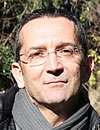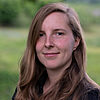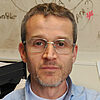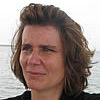Miguel LOPEZ-FERBER

Short CV
Born in Caracas, Venezuela in 1958, Miguel graduated in Genetics in 1980 at the University of Oviedo, Spain. During his PhD he worked on the transmission and the effects of Drosophila viruses at the Laboratoire de Pathologie Comparée in Saint Christol les Alès (France).
After one an a half years at the CNRS Virus Genetics Laboratory at Gif sur Yvette, near Paris, he joined the team of Bob Possee at the NERC Institute of Virology in Oxford (UK), where he started working with baculoviruses.
In 1992, he joined the INRA as a senior scientist to study baculovirus-insect relationships and the development of biological control agents, and he returned to Saint Christol les Alès. In 2005 he resigned from INRA to become the Head of the LGEI, Laboratory at the Ecole des Mines d’Alès in Alès, France (EMA, https://www.ema.fr), member of the French “Groupe des Ecoles des Mines (https://www.gemtech.fr).
His research interests are focused on the adaptation of viruses to their hosts. From an analysis of the caracterisation of baculovirus genes some years ago, he now works on the variability of baculoviruses: how variability is maintained in the population and what is its relevance to ensure adaptation to hosts.
He teaches environmental impact, biological control and baculovirus-based biotechnology at the Ecole des Mines d’Alès, and at the Universidad Publica de Navarra. He contributed to other specialised courses at the Université de Montpellier and the Université de Pau et Pays de l’Adour.
Since 2007, he is the responsible of the Viruses subgroup at the IOBC-WPRS WG Insect Pathogens and Insect Parasitic nematodes.













